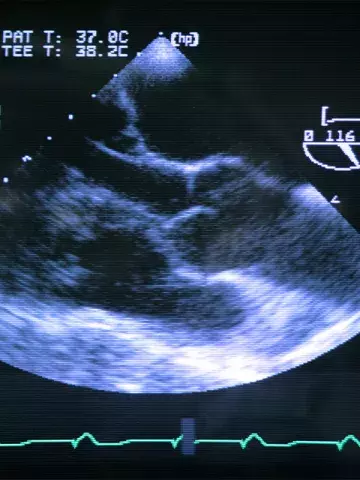Asymptomatic valvular heart disease prevalent in older people
By Melanie Hinze
Despite a recent echocardiographic study finding that age is significantly associated with asymptomatic valvular heart disease (VHD), an Australian expert suggests it does not make a case for routine screening in older people.
Professor Gary Jennings, Heart Foundation Chief Medical Advisor was discussing the findings of research published in the European Heart Journal – Cardiovascular Imaging.
The prospective cohort study aimed to look at the prevalence of asymptomatic VHD and the feasibility of echocardiographic screening for VHD in 4237 asymptomatic individuals aged 60 years or older from the UK.
Participants were invited to take part through general practices that were selected as being representative of the demographics of the UK population.
Participants with known cardiac disease or a symptomatic or past history of heart failure were excluded from the study. This ensured that included participants had no indication for echocardiography according to guidelines or practice.
VHD was diagnosed in 28.2% of patients, with the most common types being regurgitation of the tricuspid (13.8%), mitral (12.8%) and aortic (8.3%) valves. The prevalence rate of clinically significant VHD was 2.4%, with mitral and aortic regurgitation being the most common.
Those with VHD were found to be on average 2.5 years older than those without VHD (p<0.001). Similarly, the prevalence of VHD increased with increasing age, from 21.2% in those aged 60 to 64 years to 31.5% among those aged 70 to 74 years and 53.6% in those aged over 85 years.
The researchers found that for individuals aged 60 years or older, the number needed to scan todiagnose one clinically significant case of VHD was 42. For those aged 75 years or older, the number needed to scan was only 15 people.
However, Professor Jennings told Medicine Today that although a large number of participants had valve abnormalities, most of these were mild. ‘Age was the major factor associated with asymptomatic valve lesions,’ he added.
‘Curiously, aortic sclerosis which may lead to aortic stenosis, was not seen in this study, related to the inclusion/exclusion factors,’ he said, noting that this was the most important emerging agerelated valve problem in the community.
‘Cost-benefit analysis was not performed, but at face value, this study does not yet present a strong case for routine echocardiography screening in the elderly,’ he told Medicine Today.
Eur Heart J Cardiovasc Imaging 2024; 00: 1-8; https://doi.org/10.1093/ehjci/jeae127.


